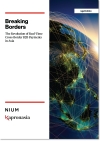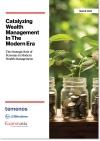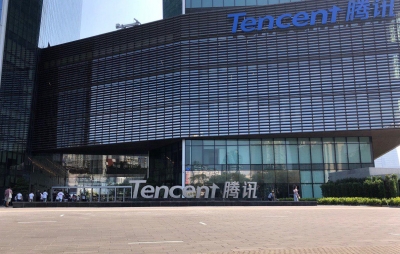Latest Insight
- Why cash is still prevalent in Asia
- Japan steps up green finance efforts
- South Korea charts middle path on crypto
- Should Grab and GoTo merge?
- Singapore pushes ahead with fintech-driven sustainability
- Digital banks in South Korea continue to thrive
- Billease is the rare profitable BNPL firm
- Fintech sector in Pakistan faces mounting challenges
- Where digital banks in Asia can make a difference
- Cashless payments jump in Vietnam
Latest Reports
-
Breaking Borders
 Despite progress in payment systems, the absence of a unified, cross-border Real-Time Payments (RTP) network means that intermediaries play a crucial role in facilitating connectivity. This report examines the ongoing complexities, challenges, and initiatives in creating a seamless payment landscape across Asia. Innovate to Elevate
Despite progress in payment systems, the absence of a unified, cross-border Real-Time Payments (RTP) network means that intermediaries play a crucial role in facilitating connectivity. This report examines the ongoing complexities, challenges, and initiatives in creating a seamless payment landscape across Asia. Innovate to Elevate In the dynamic and diverse financial landscape of the Asia-Pacific (APAC) region, banks are at a pivotal juncture, facing the twin imperatives of innovation and resilience to meet evolving consumer expectations and navigate digital disruption. Catalyzing Wealth Management In The Modern Era
In the dynamic and diverse financial landscape of the Asia-Pacific (APAC) region, banks are at a pivotal juncture, facing the twin imperatives of innovation and resilience to meet evolving consumer expectations and navigate digital disruption. Catalyzing Wealth Management In The Modern Era Hyper-personalized wealth management presents a paradigm shift from traditional models relying on static, generalized segments. Developing tailored investor personas based on psychographics, behaviours and fluid financial goals enables financial institutions to deliver rich and tailored customer experiences that resonate with next-generation priorities.
Hyper-personalized wealth management presents a paradigm shift from traditional models relying on static, generalized segments. Developing tailored investor personas based on psychographics, behaviours and fluid financial goals enables financial institutions to deliver rich and tailored customer experiences that resonate with next-generation priorities.
Events
| April 23, 2024 - April 25, 2024 Money 2020 Asia 2024 |
| October 21, 2024 - October 24, 2024 Sibos Beijing |
| November 06, 2024 - November 08, 2024 Singapore Fintech Festival |
South Korea's K bank, one of three licensed virtual banks in the country, is planning to reopen in July if it can secure additional capital. K bank suspended most of its services about a year ago amid fundraising travails. It would be an impressive feat for the bank to resolve those capital issues amid the pandemic-induced downturn. South Korea entered a technical recession in the second quarter with GDP expected to contract 2% compared to the January-March period, according to the Bank of Korea.
Indonesia's Gojek is one of Asia's most ambitious unicorns. It leads the ride-hailing and food-delivery markets in Indonesia, and is steadily increasing its digital banking services. In June, it filed trademarks for new business entities that could pave the way for expansion into corporate services, live-video conferencing and electronics repair. Yet the company remains unprofitable eight years after its founding. Gojek needs to boost the stickiness of its app and speed up monetization. That's why it's a wise move for the company to partner with Facebook and PayPal, which took took respective 2.4% and 0.6% stakes in Gojek's fintech arm GoPay, a regulatory filing shows. The U.S. tech giants' investments were part of a fundraising round that reportedly values at Gojek at more than US$10 billion.
In May the European Commission named Cambodia as one of 12 nations at a high risk for money laundering and terrorism financing. The EC's move is a setback for Cambodia, which aims to attract foreign investment and develop a thriving digital economy. The kingdom will likely be added to a list that includes countries such as North Korea Iran, Yemen, Syria and Afghanistan. The EC said that it sought to better align with the international money-laundering watchdog FATF, which put Cambodia on its gray list in February 2019 for having "significant deficiencies" in its anti-money laundering and counter-terrorism financing regime.
Judo Bank has become the first of Australia's neobanks to reach a AU$1 billion valuation and just the second so-called fintech "unicorn" in the country after Tencent-backed Airwallex. Investors shrugged off the coronavirus pandemic and economic doldrums - Australia is headed for its first recession since 1991- and handed Judo an additional AU$230 million in May. Melbourne-based Judo has now raised a total of AU$770 million in equity over three fundraising rounds. Among Judo's existing investors: the Abu Dhabi Capital Group, Bain Capital Credit, Ironbridge, Myer Family Investments, OPTrust, SPF Investment Management, and Tikehau Capital.
On May 17, the People’s Bank of China (PBOC) Shanghai branch announced the launch of the Shanghai Fintech Innovation Regulatory Trial, which follows the trial in Beijing last December. In addition, the Shanghai Fintech Industry Alliance (SFIA) was established to encourage innovative fintech programs in the Yangtze River Delta region.
Regulatory sandboxes provide fintech firms a controlled and supervised environment to test innovative products, services, or business models. Fintech innovation is an important driver of growth in the financial industry, especially in China. However, potential risks need to be addressed, notably customer security and data protection. At the same time, regulatory uncertainty could dissuade investors from investing in a company. For their part, meanwhile, regulators need to develop a deep understanding of innovative applications so that they are able to effectively regulate new business models and technologies. Thus, regulators use a regulatory sandbox to achieve a balance between technological innovation and risk prevention, so as to implement more universal policies.
Project qualification and regulator duties
In mid-January, the PBOC announced the first batch of trial applications, including the Internet of Things, APIs, smart tokens and trusted execution environment. Six projects have been approved to join in the trial scheme in Beijing, including API open banking (CITIC aiBank), supply chain finance based on IoT (Industrial and Commercial Bank of China), automatic loans for micro-credit products (Agricultural Bank of China), mobile POS (China UnionPay, Xiaomi and JD digits), Zhiling products managing smart token (CITIC Bank, UnionPay, Duxiaoman payment and Ctrip) and instant online loan (Bank of Ningbo).
In late April, the PBOC extended the second batch of sandbox experimental cities to Shanghai, Chongqing, Shenzhen, Hangzhou and Suzhou, as well as the Xiong’an New Area, a much-anticipated new economic zone. The Shanghai trial will guide licensed financial institutions and technology companies to join in the scheme, with the aim to protect consumers’ rights and assist SMEs with maintaining their operations during the COVID-19 crisis. The Shanghai financial regulator said that it would apply “soft regulatory methods” such as information disclosure, product notice, and social supervision. It will also support the local sandbox to connect with other sandboxes around the world.
Although there are similar products widely available on the market, such as instant internet loans issued by banks or internet loan providers, putting a project into the sandbox can allow it to grow freely without falling afoul of existing regulations, supporting the creation of new business models and helping familiarize regulators with them.. However, if a project does not progress fast enough in the sandbox, it may stand little chance of succeeding in the real market.
The Sandbox experience in the UK and ASEAN
The British government first developed the concept of the "regulatory sandbox." The UK Financial Conduct Authority (FCA) launched its innovation program in 2014 and has supported more than 700 firms to test their innovation with real customers in the live market under controlled conditions. The access to regulatory expertise through the sandbox has reduced the time-to-market for firms and potentially lowered related costs. According to the FCA, 90% of the firms in the first cohort have continued towards a wider market launch. And at least 40% of firms that completed testing in cohort 1 received investment during or following their sandbox test.
Across ASEAN, regulatory sandboxes are also playing their role in managing risk in fintech innovation. In Singapore, the Monetary Authority of Singapore (MAS) launched its fintech sandbox in 2016 to encourage more fintech experimentation and innovation. One company, Inzsure Pte Ltd, was forbidden to continue serving as an insurance broker after the sandbox test.
The Bank of Thailand launched a regulatory sandbox in early 2017 and encouraged innovative companies to develop services and products. In the Thai model, a startup’s innovations stay in the sandbox for a fixed period of 6 to 12 months. Successful businesses after this period can apply for operating licenses.
Sandboxes in Zhejiang and the Greater Bay Area
Hangzhou is to release its Fintech Sandbox rules this week. The detailed establishment plan will be set by Hangzhou Central Sub-branch of PBC, Zhejiang Bureau of CBIRC, Financial Bureau of Zhejiang Province, and Hangzhou Municipal Bureau of Finance.
Meanwhile, in order to accelerate financial and trade integration of the “Greater Bay Area”, the PBOC announced the release of the “Opinions Concerning Financial Support for the Establishment of the Guangdong-Hong Kong-Macau Greater Bay Area” on May 14. The PBOC produced the Opinions in collaboration with the China Banking and Insurance Regulatory Commission (CBIRC), the China Securities Regulatory Commission (CSRC) and the State Administration of Foreign Exchange (SAFE). The options include plans to promote a cross-border regulatory sandbox.
These trial projects form part of China’s Fintech Development Plan (2019-2021). According to internet bank XWBank (XinWang Bank), the fintech regulatory trials will test the best regulatory methods and provide corresponding space and system guarantees for fintech innovations based on the “regulatory sandbox” innovative regulation model.
As tensions between the U.S. and China flare up in the financial sector, the future of Chinese fundraising in America's capital markets looks uncertain. Hong Kong has benefited, attracting a growing number of Chinese tech IPOs and secondary share listings from juggernauts like Alibaba and JD.com. Another possible winner in the U.S.-China financial tussle could be London, which began operating the London-Shanghai Stock Connect scheme in 2019.
A unicorn cannot thrive on ride hailing alone. That's why Indonesia's Gojek is betting on fintech to bolster its fortunes. Its arch-rival Grab is taking a similar road. Starting with payments, the ride-hailing giants aim to transform themselves into bonafide financial services providers, monetizing customer data by using it to create different digital banking products. Despite the pandemic, Gojek managed to raise another US$1.2 billion in March to support its expansion efforts. Gojek then acquired the Indonesian payments startup Moka and established a tie-up with the fintech Pluang, which offers digital gold investments.
At first blush, UBS's bid for a digital bank license in China looks rather ambitious. Beijing doesn't give them out too often. In fact, no foreign lender in China has one. There are just four licensed digital banks in China: Ant Financial's MYBank, Tencent's WeBank, Baidu's AiBank and China Citic Bank. Retail banking has long been the holy grail just out of reach for foreign banks in China. Yet UBS sees a chance to develop a digital-first wealth management business in the country as Beijing prepares legislation that could open up the market to more foreign competition.
Tencent has paid US$300 million for a 5% stake in Australia's Afterpay in a bid to strengthen its global fintech services and expand into smart retail. Afterpay allows shoppers to pay in four installments for purchases online or in retail stores. It claims to have 7.3 million users globally.
Singapore's Grab reckons it can become the first loss-making ride-hailing firm to reinvent itself as a viable digital bank. So confident is Grab in its fintech endeavor that it has applied for a digital full bank license in Singapore with telecoms giant Singtel. If Grab succeeds as a digital bank, it will be an outlier. China's Didi launched a fintech unit in early 2019, but has yet to make any progress in digital banking. Uber too thinks fintech can help it monetize and created a dedicated division about a year ago. Like Didi's, it has gone nowhere yet. And of course, there's Gojek, an Indonesia-based variant of Grab. It too is dabbling in digital banking.
More...
The coronavirus pandemic is a day of reckoning for overvalued, overhyped and overextended fintechs. With a "go big or go home" ethos, these firms are finding that amid the virus-induced downturn they may have nowhere to go. Not so for South Korea's Viva Republica, the country's only fintech unicorn, which has been steadily building a business in its home market for nearly a decade. In fact, Viva Republica's mobile banking platform Toss just broke even in April for the first time in its five-year history. That's impressive given that the South Korean economy is in recession. South Korea's GDP contracted contracted 1.4% year-on-year in the first quarter, its worst performance since the 2008-09 global financial crisis.
Myanmar is gradually opening its banking sector to foreign investment in a bid to boost the economy. International lenders see strong potential in the Southeast Asian nation's underdeveloped financial industry. Myanmar has been one of the region's fastest growing economies in recent years. Thus far, it has not been hit hard by the coronavirus pandemic either. In April, the Central Bank of Myanmar approved seven Asian banks to enter the country: Taiwan's Cathay United Bank and Mega International Commercial Bank, South Korea's Industrial Bank of Korea, KB Kookmin Bank and Korea Development Bank, Bank of China Hong Kong and Siam Commercial Bank.
Indonesia's P2P lending sector has been growing fast for several years now, providing a vital credit channel for cash-strapped consumers and SMEs. In February, online lending increased 225% annually to reach US$6.1 billion, 80% of which was in the P2P segment, according to data compiled by the Indonesian government. Then the coronavirus pandemic hit the country of 267 million, plunging it into a technical recession. While several of the largest P2P lenders are weathering the coronavirus pandemic well, others are not so fortunate. The economic fallout from the virus may end up having a more profound impact on the industry's development than regulatory measures enacted last year to reduce compliance failures and protect consumers.
Malaysia was gradually moving in a cashless direction long before the coronavirus pandemic hit the country, forcing it into lockdown from mid-March until early May. The virus just may have accelerated Malaysia's cashless push though, as people out of necessity opted for contactless payments instead of those involving contact. Now, digital wallets are offering new incentives to consumers and merchants, while policymakers are tightening regulations around the use of cash. Malaysia's cashless vision appears to have gotten an unexpected boost from the pandemic.
A growing number of global fintechs are eager to tap China's growing remittances business, the world's second largest after India. Given China's strict controls of money flows, the right local partner is important for gaining access to the market. Otherwise, regulatory hurdles are tough to surmount. In April, Singapore-based digital cross-border payments platform Nium announced it would partner with Geoswift, a counterpart headquartered in Hong Kong that specializes in clearing payments in and out of the Chinese mainland.















